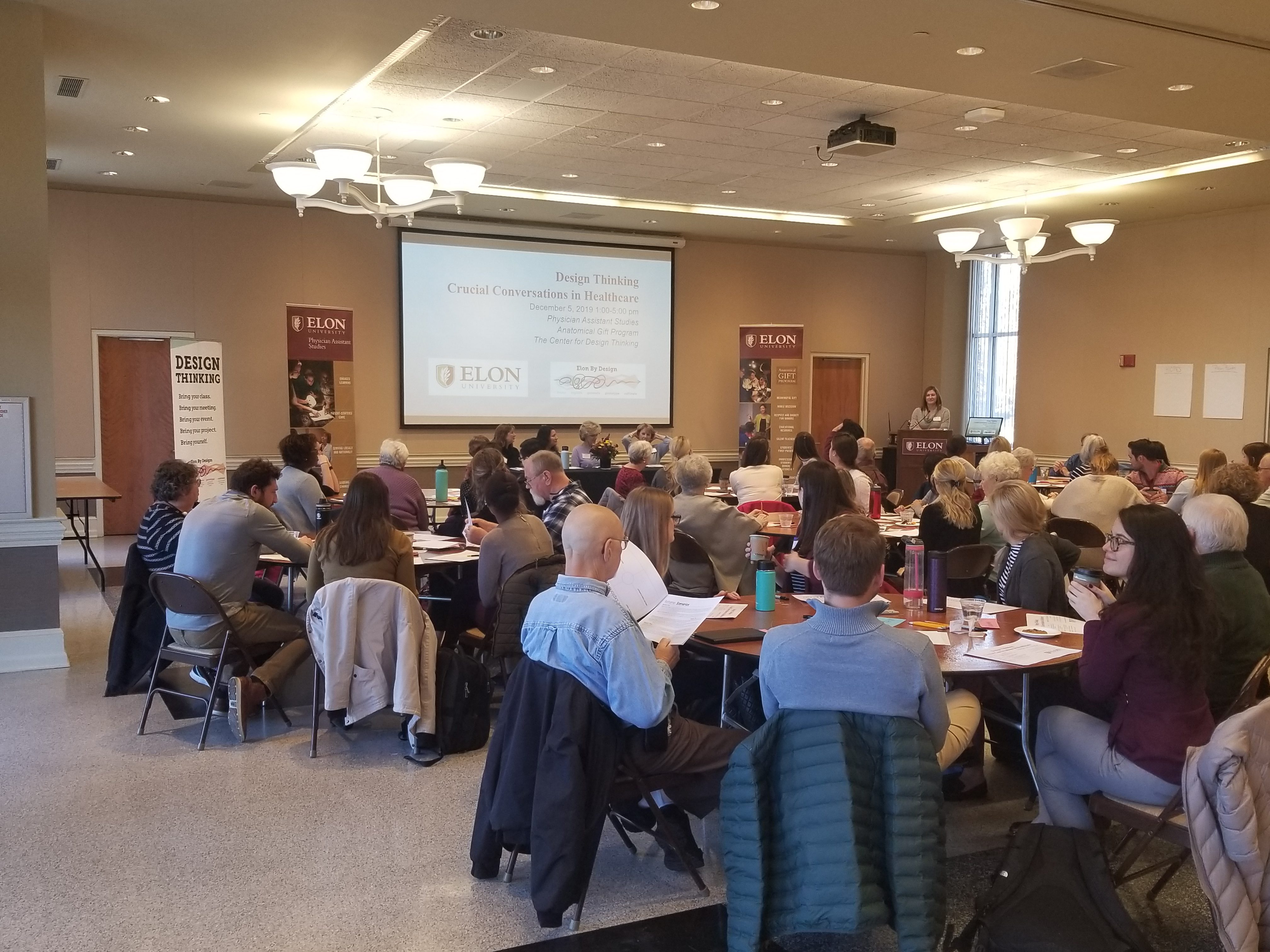The Physician Assistant Studies Program and the Anatomical Gift Program partnered with the Center for Design Thinking on Dec. 5 to host “Crucial Conversations in Healthcare.”
The Physician Assistant Studies Program and the Anatomical Gift Program partnered with the Center for Design Thinking on Dec. 5 to host the program “Crucial Conversations in Healthcare.”

Elon Physician Assistant Studies students and community volunteers used design thinking practices to help better prepare for the crucial end-of-life conversations they will have as health care practitioners and patients, fostering humility, empathy, compassion and respect.
The idea to pair students with community volunteers began with Dianne Person, director of the Anatomical Gift Program in the School of Health Sciences. Person said her aim was to “help foster connections and give voice to patients, their families, and future healthcare providers.”
Person, seeking a collaborative partnership to move this vision forward, found such with Professor Tracey Thurnes. An assistant professor of physician assistant studies, Thurnes said the goal was to “foster opportunities for mutual and reciprocal learning that ensures everyone—students and community volunteers—leave the workshop better equipped to have crucial conversations with their patients, healthcare professionals and families.”
The two partnered with Danielle Lake, director of design thinking, to imagine next steps.
The event’s success flowed from the willingness of community volunteers and students to openly share their experiences.
Keynote speaker Marcia Vanard, vice president of counseling, education and support services for Hospice and Palliative Care of Greensboro, said “we need to create a space for these conversations and we need to get better about asking open-ended questions. If we can’t acknowledge dying, we leave our loved one alone at a time when they need love and support.”
Vanard said we must not forget that “treatments have consequences” and there are “seemingly endless treatments. How we live and die is a fully human and very individual process.”
Volunteers helped students understand that sometimes patients may not be ready to answer their questions, sign forms or make future plans. Participants stressed the need to face our collective fears of having difficult conversations and actively work to be courageous, transparent and accepting of each other’s personal goals.
The workshop was facilitated by community professionals in the fields of physician assistant care, social work, and hospice and palliative care. Facilitators provided expertise to students and volunteers in the development of their communication skills and encouragement to consider many factors that influence how people deal with crucial conversations.

According to participants, the workshop met its goals. The evaluations from students and community volunteers substantiate the mutually beneficial outcomes from Crucial Conversations in Healthcare. Students were eager to implement empathy maps in order to better understand the hopes and goals of future patients. Community volunteers said they appreciated the opportunity to understand these conversations through the eyes of health care practitioners.
The workshop will be held again in 2020 and will move forward as a co-learning course in future School of Health Sciences curriculum. As one volunteer noted, Elon is committed to ensuring there are “good PAs out there!”



